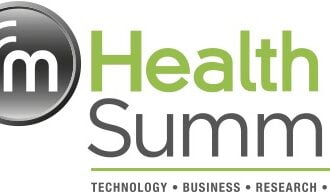As the healthcare industry becomes more reliant on electronic patient data, the same technological capacity enables cyber-attacks to be more sophisticated and damaging to medical practices. Unfortunately, many fail to protect their practice against cyber-attacks due to a lack of knowledge, negligence, and lack of appropriate tools.
Healthcare data breach statistics identify hacking and unauthorized access to protected health information (PHI) as the leading causes of healthcare data breaches. Access to PHI is a valuable resource for data theft and cyber extortion, which makes it a tempting target for cyber-attacks or attempts to steal and expose information through unauthorized access to computer systems.
Facing this challenge, your practice must take robust actions to protect your system from malicious attacks while maintaining quality patient care. Here are four helpful and efficient tips in protecting and enhancing your healthcare cybersecurity.
1. Make an extra effort to secure electronic devices.
Electronic devices have systems commonly designed to perform a range of specific tasks. However, these devices may not have the extra capabilities to support security mechanisms.
Hackers are most likely to access health data through lost or stolen laptops. Uncomplicated security controls in these devices, such as weak passwords, are easily hacked with software that generates a large number of password options. To prevent this from happening, ensure that all devices in your office are stored securely at the end of every shift.
Moreover, ensure that your devices have additional security features in addition to passwords. Encryption — the process of transforming data into an unreadable format — is essential to electronic data security. Authorized persons can only access this by using an encryption key — a series of algorithms used to encrypt and decrypt data.
2. Ensure all your software and operating systems are up to date
Using outdated software and operating systems puts your practice to great threats. Old versions of software and systems have vulnerabilities that make it easier for hackers to infiltrate. Moreover, they are susceptible to viruses that can cause significant damage to your healthcare services.
For instance, a magnetic resonance imaging (MRI) machine compromised with a virus due to outdated software may provide delayed or inaccurate results. Additionally, out-of-date electronic health records (EHR) or communications software can lead to increased cybersecurity risks as well as unsatisfactory patient experiences.
Software and operating systems require periodic updates to keep it secure and add improved features. Many of these updates address vulnerabilities, which is critical to maintaining a secure system.
Other than keeping the software and operating systems updated, you and your team must be extra careful in installing additional software applications:
- Uninstall software applications unnecessary to running your practice, such as games, social media apps, photo-sharing applications, etc.
- When installing an application, make sure to read the terms and conditions. Do not simply accept configurations. Deceptive software exist that contain potent viruses
- Disable remote file sharing and limit network access within your system
- Install up-to-date and well-maintained antivirus software
3. Educate your staff on how to detect potential cyber-attacks and enforce cyber security.
Today’s cyber attackers don’t just target technology. They also take advantage of human negligence and ignorance.
Educating your medical staff on the value of health data security is critical in protecting your practice from cyber threats. They must be well-informed about what constitutes a cyber-attack and how to counteract them.
The following are common situations where attempts of a cyber-attack can take place:
- Having weak passwords makes your practice more vulnerable to hacking
- Receiving malware emails pretending to offer tempting services or discounts
- Visiting unsafe websites and following suspect links
To avoid being a victim of a cyber-attack, share these crucial cybersecurity tips with your staff:
- Do not open malicious emails — use your work email solely for medical transactions
- Implement a strict policy on surfing the internet — only access sites and applications dedicated to work
- Use a strong, unique password for every device and user account
- Remind your staff to change their passwords periodically
4. Implement systems that prioritize data privacy and security
Now that many medical professionals have adopted telemedicine into their practice, it’s vital to have the right platform for patient data security. A telemedicine system must have the following features:
- Integrates EHR
- Allows HIPAA-compliant patient communication
- Supports and safeguards workflows
EHRs are a crucial part of any practice because both physicians and patients rely on them for data processing and sharing. Achieving HIPAA compliance in healthcare is critical to protecting sensitive health information. System integration allows your clinic to operate smoothly.
Fortunately, Curogram is 100% HIPAA compliant, which means every patient communication, including PHII, your practice sends or receives is protected. You can send and receive HIPAA-compliant text messages as part of the comprehensive practice management solution.
Knowing the increasing risks of cyber attacks, your medical practice must review cybersecurity risks and introduce best practices and processes to protect your devices and patient welfare.








